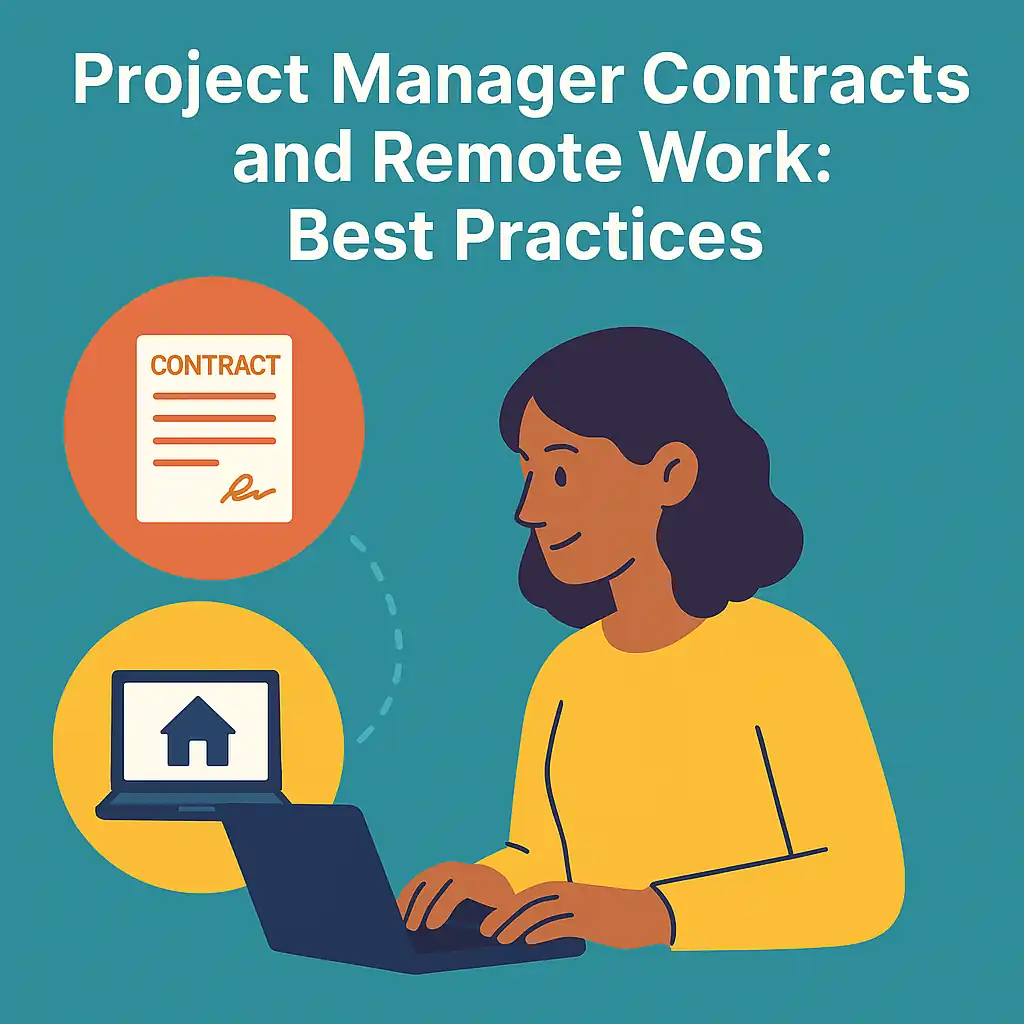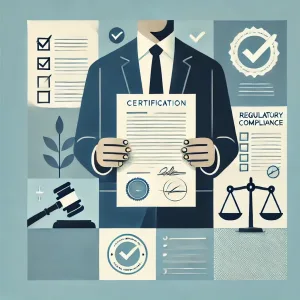Introduction
The role of a project manager has transformed significantly, especially with the rise of remote work. Project managers are now tasked with overseeing teams that may be dispersed across various geographical locations, necessitating a shift in how they operate and manage projects.
- Defining the Role of a Project Manager in a Remote Setting: In a remote environment, project managers are responsible for coordinating tasks, ensuring effective communication, and maintaining team cohesion despite physical distances. They must leverage digital tools to facilitate collaboration, monitor progress, and provide support to team members who may be working in different time zones. This requires not only strong organizational skills but also the ability to foster a culture of trust and accountability among remote teams [1][6].
- The Rise of Remote Work and Its Impact on Project Management: The trend towards remote work has accelerated in recent years, driven by technological advancements and changing workforce expectations. This shift has fundamentally altered project management practices, as managers must now adapt to new communication methods and project tracking systems. The ability to manage projects remotely has become essential, leading to the development of innovative strategies and tools that enhance productivity and engagement among remote teams [2][7].
- The Importance of Contracts for Project Managers: In this new remote work paradigm, contracts play a crucial role in defining the expectations and responsibilities of project managers and their teams. Clear contracts help establish guidelines for communication, project deliverables, and performance metrics, which are vital for successful project execution. They also serve to protect both the organization and the project manager by outlining the terms of engagement, including work schedules and deliverables, which are particularly important in a remote setting where oversight may be limited [3][8].
As we delve deeper into the best practices for adapting project manager contracts to the remote work environment, it is essential to recognize the unique challenges and opportunities that this new landscape presents. By understanding these dynamics, remote project managers and HR professionals can create effective contracts that support their teams and drive project success.
Understanding Project Manager Contracts
With the rise of remote work, understanding project manager contracts is essential for both project managers and HR professionals. These contracts serve as the foundation for the working relationship, outlining expectations, responsibilities, and terms of engagement.
What is a Project Manager Contract?
A project manager contract is a formal agreement between a project manager and an organization that defines the scope of work, responsibilities, and terms of employment or engagement. This contract is crucial in establishing clear expectations and ensuring that both parties are aligned on project goals and deliverables. It typically includes details about the project duration, payment terms, and specific duties the project manager is expected to fulfill.
Key Components of a Project Manager Contract
When drafting or reviewing a project manager contract, several key components should be included:
- Scope of Work: Clearly defines the tasks and responsibilities of the project manager, including project objectives and deliverables.
- Duration of Contract: Specifies the start and end dates of the project, along with any milestones or deadlines.
- Compensation: Outlines payment terms, including salary, hourly rates, or project-based fees, as well as any bonuses or incentives.
- Confidentiality and Non-Disclosure Agreements: Protects sensitive information and intellectual property shared during the project.
- Termination Clause: Details the conditions under which either party can terminate the contract, including notice periods and grounds for termination.
- Dispute Resolution: Establishes the process for resolving conflicts that may arise during the project.
Types of Project Manager Contracts
Project manager contracts can vary significantly based on the nature of the employment relationship. Here are the primary types:
- Freelance Contracts: These are typically short-term agreements where project managers are hired for specific projects or tasks. Freelancers often have more flexibility but may lack benefits associated with full-time employment.
- Full-Time Employment Contracts: In this arrangement, project managers are employed by an organization on a permanent basis. These contracts usually include comprehensive benefits, job security, and a structured salary.
- Contract-to-Hire Agreements: This type of contract allows organizations to evaluate a project manager’s performance over a specified period before deciding to offer full-time employment. It combines elements of both freelance and full-time contracts, providing flexibility for both parties.
As remote work continues to shape the project management landscape, understanding these contracts and their components is vital for ensuring successful project execution and fostering positive working relationships. By adapting contracts to meet the needs of remote environments, organizations can better support their project managers and enhance overall project outcomes.
The Unique Challenges of Remote Work
In a remote work environment, project managers face a distinct set of challenges that can significantly impact contract management. Understanding these challenges is crucial for both remote project managers and HR professionals as they adapt contracts to meet the needs of a distributed workforce.
Communication Barriers
One of the most pressing challenges in remote project management is the communication barrier. Unlike traditional office settings, remote teams often rely on digital communication tools, which can lead to misunderstandings and misinterpretations. The absence of non-verbal cues, such as body language and tone, can complicate interactions, making it essential for project managers to establish clear communication protocols within their contracts. This includes specifying preferred communication channels, response times, and expectations for regular updates to ensure that all team members are aligned and informed throughout the project lifecycle [1][4].
Time Zone Differences
Time zone differences present another significant hurdle for remote project managers. Coordinating meetings and deadlines across various time zones can lead to delays and frustration among team members. This challenge necessitates careful consideration in contract terms, such as setting flexible deadlines or establishing core hours when all team members are expected to be available. Additionally, project managers may need to include provisions for accommodating different working hours to ensure that all team members can contribute effectively without feeling overwhelmed or excluded [6][7].
Lack of Direct Oversight
The shift to remote work often results in a lack of direct oversight, which can impact accountability and productivity. In a traditional office environment, project managers can easily monitor progress and provide immediate feedback. However, in a remote setting, this oversight is diminished, leading to potential issues with task ownership and accountability. Contracts should address these concerns by incorporating performance metrics, regular check-ins, and clear expectations regarding deliverables. By establishing these terms, project managers can foster a sense of responsibility among team members while ensuring that projects remain on track despite the physical distance [2][9].
Best Practices for Drafting Project Manager Contracts for Remote Work
It is essential to adapt contracts to ensure clarity and effectiveness. Here are some best practices for drafting project manager contracts tailored to the remote work environment:
- Clear Definitions of Roles and Responsibilities: It is crucial to explicitly define the roles and responsibilities of the project manager within the contract. This includes detailing the scope of work, specific tasks, and the authority level of the project manager. A well-defined role helps prevent misunderstandings and sets clear expectations for both parties involved [2].
- Specify Communication Protocols and Tools: Given the remote nature of work, establishing clear communication protocols is vital. The contract should specify which tools will be used for communication (e.g., Slack, Zoom, email) and outline the frequency and format of updates and meetings. This ensures that all team members are on the same page and can collaborate effectively, regardless of their physical location [9].
- Outline Expectations for Availability and Responsiveness: It is important to set expectations regarding the project manager’s availability and responsiveness. The contract should define working hours, response times for communications, and any flexibility required for different time zones. This clarity helps in managing team dynamics and ensures that project timelines are adhered to [1].
- Incorporate Performance Metrics and Evaluation Criteria: To assess the effectiveness of the project manager, the contract should include specific performance metrics and evaluation criteria. This could involve setting benchmarks for project milestones, quality of deliverables, and team engagement levels. By incorporating these metrics, both the organization and the project manager can have a clear understanding of success and areas for improvement [10].
By following these best practices, remote project managers and HR professionals can create contracts that not only protect the interests of both parties but also foster a productive and collaborative remote work environment.
Legal Considerations in Remote Project Manager Contracts
It is crucial for project managers and HR professionals to understand the legal implications of contracts. Here are some key legal considerations to keep in mind when drafting contracts for remote project managers:
1. Jurisdiction and Its Importance
- Defining Jurisdiction: When drafting contracts for remote project managers, it is essential to clearly define the jurisdiction that will govern the contract. This is particularly important as remote work often involves parties located in different states or countries. The chosen jurisdiction will determine which laws apply and how disputes will be resolved [1].
- Implications of Jurisdiction: Different jurisdictions may have varying laws regarding employment, taxation, and contract enforcement. Understanding these differences can help avoid legal complications and ensure compliance with local regulations [3].
2. Intellectual Property Rights
- Ownership of Intellectual Property: In a remote work environment, it is vital to address intellectual property (IP) rights explicitly in the contract. This includes clarifying who owns the IP created during the project and how it can be used post-project [2][6].
- Protection of IP: Contracts should include provisions that protect the company’s intellectual property from unauthorized use or disclosure by remote project managers. This is particularly important when sharing sensitive information or proprietary processes [9].
3. Confidentiality Agreements and Data Protection
- Importance of Confidentiality: Confidentiality agreements are crucial in remote contracts to ensure that sensitive information remains protected. These agreements should outline the responsibilities of the project manager to maintain confidentiality, regardless of their work location [8].
- Data Protection Considerations: With remote work often involving the use of various digital tools and platforms, it is essential to include clauses that address data protection. This includes compliance with relevant data protection laws and regulations, ensuring that personal and sensitive data is handled appropriately [4][10].
By incorporating these legal considerations into project manager contracts, organizations can better navigate the complexities of remote work, protect their interests, and foster a secure working environment for all parties involved.
Negotiating Contracts in a Remote Environment
Negotiating contracts has become a nuanced process that requires careful consideration and adaptation. Here are some best practices for remote project managers and HR professionals to effectively navigate contract negotiations in this new environment.
Importance of Transparency and Communication
- Clear Expectations: Establishing clear expectations from the outset is crucial. Both parties should define working hours, availability, and preferred communication methods to avoid misunderstandings later on. This clarity helps in setting the tone for a collaborative relationship throughout the project [1].
- Open Dialogue: Encourage an open dialogue where both parties can express their needs and concerns. This transparency fosters trust and can lead to more favorable outcomes for both sides. Honest discussions about project responsibilities and expectations can significantly enhance the negotiation process [6].
Remote Negotiation Techniques
- Utilize Video Calls: Video conferencing tools can bridge the gap created by physical distance. They allow for real-time interaction, enabling negotiators to read body language and engage more personally than through emails or chats. This can lead to a more effective negotiation atmosphere [5].
- Collaborative Tools: Leverage collaborative platforms that allow for shared documents and real-time editing. Tools like Google Docs or project management software can facilitate a more dynamic negotiation process, where both parties can contribute and adjust terms collaboratively [4].
- Flexibility in Deadlines: Given the nature of remote work, incorporating flexibility into contract terms can be beneficial. Consider discussing flexible deadlines or milestones that accommodate the varying work environments of remote teams. This adaptability can lead to a more productive negotiation outcome [3].
Role of Feedback and Iteration
- Iterative Process: Treat contract negotiations as an iterative process rather than a one-time event. Encourage feedback at various stages of the negotiation to refine terms and address any concerns that arise. This approach not only improves the contract but also strengthens the working relationship [5].
- Continuous Improvement: After the initial contract is established, maintain a feedback loop throughout the project. Regular check-ins can help identify any issues early on, allowing for adjustments to be made in a timely manner. This ongoing communication can enhance project success and satisfaction for both parties [6].
By implementing these strategies, remote project managers and HR professionals can navigate the complexities of contract negotiations more effectively, ensuring that both parties are aligned and prepared for successful project execution.
Adapting Existing Contracts for Remote Work
It is essential for project managers and HR professionals to adapt existing contracts to better suit this new environment. Here are some best practices to consider when modifying contracts for remote project management:
1. Identify Clauses That Need Revision
- Communication Protocols: Traditional contracts may not adequately address the need for clear communication channels in a remote setting. It is crucial to specify how and when communication should occur, including the use of digital tools and platforms to facilitate collaboration [2][6].
- Work Hours and Availability: Contracts should reflect the flexibility that remote work often entails. This includes defining expected working hours while allowing for variations that accommodate different time zones and personal schedules [9].
- Performance Metrics: Establishing clear performance metrics is vital. Contracts should outline how success will be measured in a remote context, including deliverables, deadlines, and accountability measures [7][6].
2. Importance of Regular Contract Reviews and Updates
- Dynamic Nature of Remote Work: The remote work environment is constantly changing, influenced by technology advancements and shifting team dynamics. Regularly reviewing and updating contracts ensures they remain relevant and effective in addressing current challenges [1][5].
- Feedback Mechanism: Incorporating a feedback mechanism within the contract can facilitate ongoing discussions about its effectiveness. This allows for adjustments based on team experiences and evolving project needs [3].
3. Encourage Flexibility and Adaptability in Contract Terms
- Adaptable Clauses: Contracts should include provisions that allow for adjustments in response to unforeseen circumstances, such as changes in project scope or team composition. This flexibility can help maintain project momentum and team morale [4][10].
- Crisis Management: Including clauses that address crisis management and remote work challenges can prepare teams for potential disruptions. This could involve outlining procedures for communication and decision-making during emergencies [5].
By focusing on these key areas, project managers and HR professionals can create contracts that not only support remote work but also enhance team collaboration and project success. Adapting contracts to the realities of remote work is not just a necessity; it is a strategic advantage in today’s project management landscape.
Case Studies: Successful Remote Project Manager Contracts
Organizations are increasingly adapting their project manager contracts to better suit this new environment. Below are case studies that illustrate how various organizations have successfully modified their contracts for remote project managers, the positive outcomes of these adaptations, and the lessons learned from these experiences.
Case Study 1: Construction Companies in the UAE
A recent analysis focused on three construction companies in the UAE revealed significant insights into remote project management. These organizations adapted their contracts to include specific clauses that addressed remote communication, performance metrics, and flexibility in work hours.
- Outcomes: The adaptations led to improved project delivery times and enhanced team collaboration. By clearly defining expectations for remote work, these companies were able to maintain productivity levels comparable to traditional office settings, demonstrating that remote work does not compromise effectiveness [1][2].
- Lessons Learned: One key takeaway was the importance of establishing clear communication protocols and performance indicators in contracts. This clarity helped project managers lead their teams effectively, even from a distance, and ensured accountability among team members [5].
Case Study 2: Technology Firm’s Transition to Remote Work
A technology firm that transitioned to a hybrid work model found that revising their project manager contracts was essential for success. They incorporated elements such as remote work allowances, technology stipends, and defined remote work hours into their contracts.
- Outcomes: This approach resulted in higher employee satisfaction and retention rates, as project managers felt supported in their remote roles. The firm reported a 20% increase in project completion rates, attributed to the enhanced focus and morale of remote teams [4][9].
- Lessons Learned: The firm learned that flexibility in contracts is crucial. By allowing project managers to tailor their work environments, they fostered a culture of trust and autonomy, which ultimately led to better project outcomes [6][8].
Case Study 3: Non-Profit Organization’s Remote Project Management Strategy
A non-profit organization faced challenges in managing remote projects due to limited resources. They adapted their project manager contracts to include provisions for virtual team-building activities and regular check-ins.
- Outcomes: These adaptations not only improved team cohesion but also led to successful project completions that aligned with the organization’s mission. The non-profit saw a 30% increase in volunteer engagement, which was critical for their project success [3][7].
- Lessons Learned: The organization discovered that investing in team dynamics through contract stipulations can significantly enhance project performance. Regular engagement and support mechanisms are vital for remote teams to thrive [5][9].
Conclusion
With the rise of remote work, the significance of tailored contracts cannot be overstated. As remote project managers and HR professionals navigate this new environment, it is essential to recognize that traditional contracts may not adequately address the unique challenges and dynamics of remote teams. Here are the key takeaways:
- Importance of Tailored Contracts: Contracts should be specifically designed to cater to the nuances of remote work. This includes clear expectations regarding communication, work schedules, and deliverables. Establishing these parameters helps in fostering accountability and trust among team members, which is crucial for successful project execution [1][6].
- Ongoing Education and Adaptation: The remote work environment is continuously evolving, and so should the contracts that govern it. Project managers and HR professionals should engage in ongoing education about best practices in contract management. This includes staying updated on legal considerations, technological advancements, and effective communication strategies that can enhance remote collaboration [2][4].
In conclusion, proactive contract management tailored for remote work is not just beneficial; it is essential for the success of projects in today’s digital age. By embracing these best practices, remote project managers can ensure that their teams are well-equipped to meet challenges head-on and achieve their project goals effectively.
Find out more about Shaun Stoltz https://www.shaunstoltz.com/about/.
This post was written by an AI and reviewed/edited by a human.



